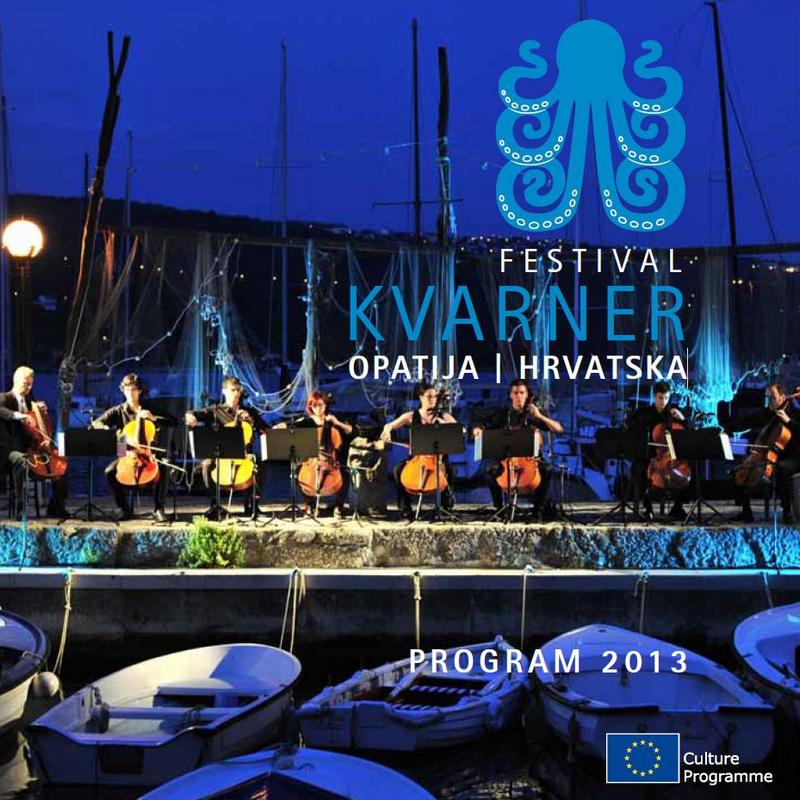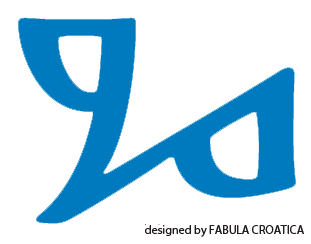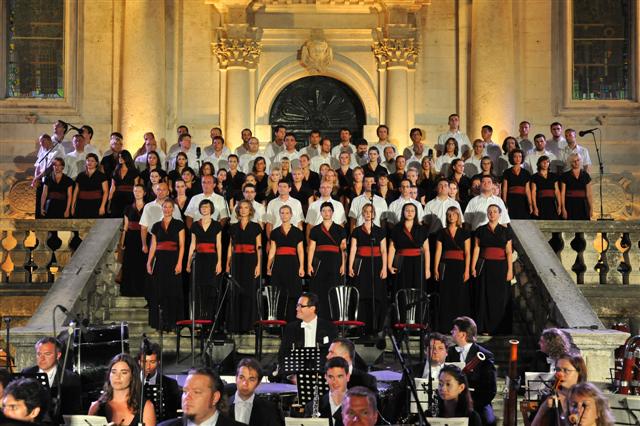GLAGOLICA a European Musical Language - project by Festival Kvarner in Opatija 25-26 June 2013 Croatia
http://www.croatia.org/crown/articles/10421/1/GLAGOLICA-a-European-Musical-Language---project-by-Festival-Kvarner-in-Opatija-25-26-June-2013-Croatia.html
By Darko Žubrinić
Published on 06/12/2013



 | The “GLAGOLICA - A European Musical Language” project, is an awarded EU project within the framework of the Culture Programme 2007-2013. We are speaking about Croatia, which will enter the European Union on 1st of July 2013. The central theme is the Croatian recension of Old Church Slavonic literary language with its Croatian Glagolitic Script. The program includes the concerts of Katarina Livljanić (25th June, Middle Age Music) and I.G. Kovačić Choir from Zagreb (26th June, Bruckner's Te Deum) in the city of Opatija in Istrian peninsula, both at 21:30. Croatian Glagolitic Script will be visualized by Ars Electronica from Vienna. On the photo is the logo of Festival Kvarner in Opatija, Croatia. |
Croatian literature is written in three scripts: Glagolitic, Latin, and to a lesser extent in Croatian Cyrillic

| GLAGOLICA - A European Musical Language The “GLAGOLICA - A European Musical Language” project, an awarded EU project within the framework of the Culture Programme 2007-2013, would like to use a date, which is historic to a certain region of Southeast Europe to present its culture, as well as an immensely important cultural heritage for all the Slavic-speaking countries. We are speaking about Croatia, which will enter the European Union on 1st of July 2013. Festival Kvarner wants to be the representative of the Slavic countries and population in order to present this cultural heritage, which is enormously important in terms of history: The Old (Church) Slavic literary language with its Glagolica script.  Croatian Glagolitic letter G (its name is GLAGOLE); designed according to the first Croatian incunabulum from 1483 (yes, printed 10 years before the discovery of America!) by Filip Cvitić, Zagreb In the centre of the project, virtually as a symbolisation, is Anton Bruckner's Te Deum, which was part of the Old Church Slavic repertoire. It will be translated into Glagolitic and visualized by Ars Electronica. 2 conferences and 2 workshops under the leadership of renowned experts will prepare this project and accompany it. Te Deum will be performed in Opatija on 26 June for the first time. The main organiser is Festival Kvarner. Among other partners, we collaborate intensively with the Old Church Slavonic Institute in Zagreb, which investigates the Croatian Glagolitism. More info you can find on www.stin.hr.  Logo of Staroslavenski Institut (SI) in Croatia's capital Zagreb (Old Church Slavonic Institute): Croatian Glagolitic ligature SI "Old Church Slavonic Institute in Zagreb, founded in 1952, is devoted to the research of the Croatian language and literature from the time when the Croats, first in their principality, later in their kingdom (in the 10th century, King Zvonimir), participated with other European peoples in establishing the historical, political, spiritual, and civilization foundations of modern Europe. Therefore, the scholars of the Old Church Slavonic Institute study the medieval chapter of the Croatian language and literary culture. These studies, which started in the 18th century, developed more profoundly at the end of the 19th and in the first half of the 20th c., and fully flourished in the second half of the 20th century mainly due to the work at this Institute. The Croatian medieval language and literary culture has a significant Latin part as Latin is the first literary language in Croatia, while the Croatian vernacular literature is written in three scripts: Glagolitic, Latin and Croatian Cyrillic. Out of this rich heritage the Old Church Slavonic Institute investigates the Croatian Glagolitism." Source: Old Slavic Institute, Zagreb, Croatia |

White octopus is the logo of the Festival Kvarner
| PROGRAM FESTIVAL KVARNER - GLAGOLICA |

Katarina Livljanić, distinguished international expert in Middle Age Music, born in the city of Zadar, Croatia,
associate professor at Sorbonne, Paris, founder of Ensemble Dialogos

associate professor at Sorbonne, Paris, founder of Ensemble Dialogos

Formated for CROWN by Darko Žubrinić
Distributed by www.Croatia.org . This message is intended for Croatian Associations/Institutions and their Friends in Croatia and in the World. The opinions/articles expressed on this list do not reflect personal opinions of the moderator. If the reader of this message is not the intended recipient, please delete or destroy all copies of this communication and please, let us know!